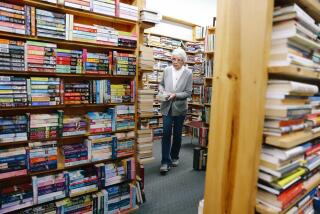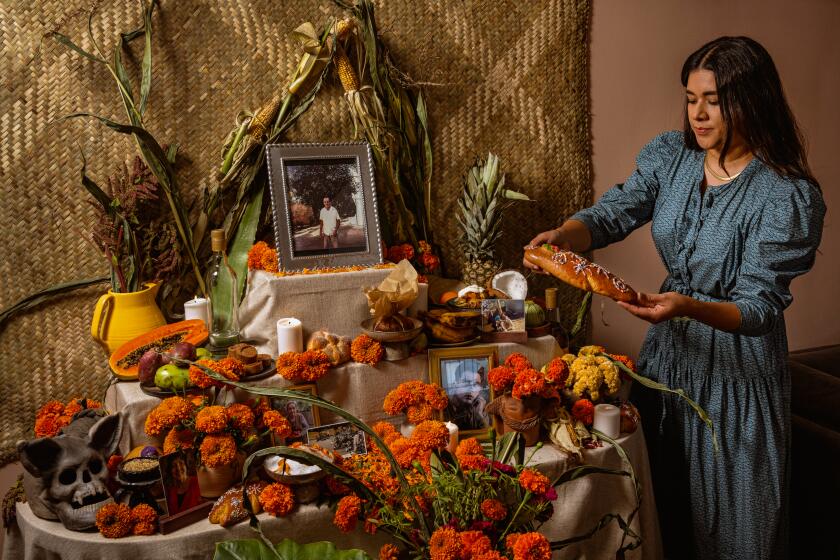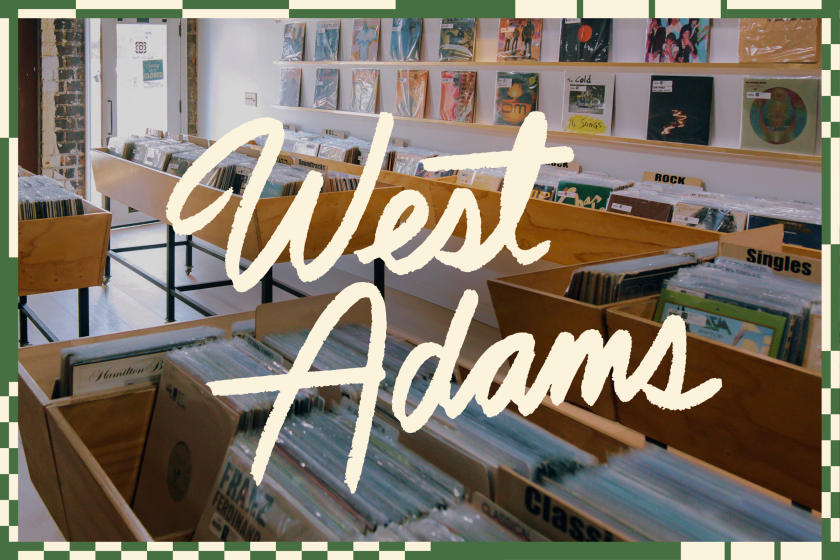There’s Magic in Cooking Up a Fine Collection of Books
Fortunately, there aren’t many cookbooks being readied for the upcoming sale of the Friends of the Newport Beach Library that my wife doesn’t already have. Otherwise, I’m afraid our house would be spilling over with books again, despite my wife’s efforts to get rid of those which no longer interest us.
As I reported a couple of months ago, my wife managed to cull out about 175 books, which she hauled away to the warehouse where she and other volunteers are sorting and marking donated books for the next sale, May 2 through 4.
Most of them were books that I’d bought over the years during infatuations with various subjects.
With the exception of my faithful devotion to books on theatrical magic, I must confess to being a fickle bibliophile. The range of my passing interests has embraced early American architecture, puppetry, macrame, New England authors, 19th-Century humor and organic farming, to name but a few. These have been donated to the book sale.
My wife, however, has exhibited an exemplary fidelity to her cookbooks to the exclusion of other areas of book collecting. Oh, she adores good mystery stories, but does not keep them around. Once she buys a book of this kind and reads it, she lends it to somebody, which is, incidentally, one of the surest ways never to see a book again. The bulk of her mystery reading, however, is furnished by the public library, the best way to keep the home book shelves clear for her cookbook acquisitions.
My magic books are housed in one room. Her cookbooks are all over the house. The reason is that the magic books I seek, published in the 19th and early 20th centuries, are found rarely in old bookstores, while her cookbooks show up with some regularity. With the exception of James Beard’s scarce first book, she has acquired nearly all of this culinary giant’s books in second-hand bookstores. And just in time, I add sadly, because Beard, the greatest of American food writers, equaled only, my wife believes, by M.F.K. Fisher and the late Helen Evans Brown, died this week. It is interesting to note that this trio were all westerners, belying the myth that only Easterners are culinary innovators.
Alas, the extra spaces on our bookshelves that appeared with our donation to the Friends now are diminishing rapidly, being filled from forays by my wife. It’s a good bet that when she is late returning from grocery shopping that she is visiting bookstores.
But who am I to deny her the pleasure of her quest? When she comes in the door, her arms laden with bags, I can tell by the happy flash of her eyes that she holds more old cookbooks by weight than groceries. If she is particularly jubilant, I know she’s probably found another beautifully designed cookbook from the old Ward Ritchie Press, Los Angeles, the first western press to make a specialty of publishing western cookbooks.
Obviously, she commands the secrets of more recipes than she can possibly cook in a lifetime, the same principle applying to my magic books. You can perform only so many tricks or prepare so many different dishes. But there’s more to it than that. Not only is there the pleasure of at last acquiring hard-to-find books, but there are the profitable hours spent in the study of the collection, noting different applications of themes and historical and cultural variations over the centuries.
But the most fascinating aspect of study is in discovering the way cooks and magicians of the past have solved problems. To learn how people think is to reveal their humanity, linking the past to the present.
More to Read
Eat your way across L.A.
Get our weekly Tasting Notes newsletter for reviews, news and more.
You may occasionally receive promotional content from the Los Angeles Times.










